SERIES RE/ORIENTATION:
This week, IMAGINAL DISCO is pleased to present the third special LIVE recording from the “From Survival to Sanctuary | Speculative Solidarities in Conversation" series now underway! This episode, “QUEERING THIRD SPACES: BLUEPRINTING FUTURES of CARE,” is presented unedited and uncut, and the full transcript is available above alongside a video of the session! For this session, I (your host, Elæ Moss) am joined by Micah Bucey, Kiebpoli Calnek and Dina Janis.
This episode also marks the last of a three-part mini series co-produced by the Center for Public Action at Bennington College, where I am finishing a fellowship. This third event in the series was also recorded by local Vermont public media, Catamount Access Television (CAT-TV), where it is being archived as well as broadcast on air (on Channel 1075 on Thursday May 23 and Sunday May 26). Stay tuned for future series offerings in collaboration with a range of partner orgs and guests!
If you’re new here, welcome! My goal with these events is to invite participants and audience members alike to envision the path that will take humans From Survival to Sanctuary. Through these evenings spent with a roster of change-making visionaries across fields and disciplines, we are invited to think together about what changes we might implement to move us away from our conditioned distrust, the invented illusion of scarcity, and competitive drive towards embodying liberatory care. You’ll find each live episode (and additional content) archived here on Substack.
I want for these conversations to reach as many different types of humans as possible. They are very very much not academic! And each of these evenings' goal is to help all of us open up to questions we are asking ourselves -- or maybe haven't quite articulated yet -- as we figure out, together, what's next. Or what can be next.
MORE ABOUT THIS EPISODE:
Queering Third Spaces: Blueprinting Futures of Care brings together thinker-makers approaching their shared vision for futures of care across a range of modalities: radical faith, healing work, creative practice, public media, and local politics. In this forward-facing conversation we invite you to dialogue with our guests about what Speculative Solidarities looks like infrastructurally—on every level.
In other words: what work do we need to do to solidify the internal, spiritual, emotional, interpersonal, collective, creative foundations upon which the next steps might be built? And how might some of our existing systems and/or practices—especially those in our liminal “third spaces”—offer meaningful materials for our next steps?
Some of the questions we’re asking in this roundtable are:
Where and how does care become an ecosystem?
Who develops, builds, and models these interpersonal infrastructures?
How do our bodies learn to practice these modes of relating -- and to unlearn the divisive strategies we believed were necessary to survive?
What role do third spaces, a radical rewriting of faith as a human technology, healing modalities, and creativity play in this work?
And how does the work we're naming "queering" play a part in all of this?
At its heart, this is a conversation about building places and spaces for people to find community, support, home, care, resources... and each other. And: it’s an invitation to my guests in particular to dive a little deeper into how we as creative people / makers, teachers, and spiritual humans have both sought these out and are working to build them -- with all our different approaches and tools. But: it’s also one I’ve framed with specific language that’s not familiar to everyone — Third Space and Queering — so we began with an open conversation about what we (and our audience members) felt these meant.
To consider:
Does language that is unfamiliar to you feel inaccessible or like you are not invited, welcome, or the intended / desired audience for events or other media that use this language? When, why, and how does this show up for you?
What if anything do these terms mean or suggest to you?
The difference between a third place and a third space is often blurred, and the words are used pretty interchangeably at this point outside of scholarly environments. Audience responses, such as, a space “outside a binary” explode the potential usefulness of these ideas, perhaps beginning to invite a necessary collective redefining of third place/space beyond their social science origins. Because, as another audience member noted, the “third” nature of the thing suggests a first and second place, which perhaps is not always the case — and certainly for many, these (usually defined as “home” and work”) are blurred, and not hierarchically more primary than “third” spaces.
Both terms have their origins in social science — which of course itself has also continued to evolve to reflect more nuanced versions of the original frameworks (which you can see in the “collapsed place” diagram below, a version that may feel familiar to many of us).
Language is alive, and I’m more interested in how these terms are used and useful than arguing semantics, but I still think it's helpful to trace their lineage. Firstly, urban sociologist named Ray Oldenberg coined “third places” in the 1980’s, as a way to signify those environments where people found and built belonging beyond the home and workplace, whereas third space theory more explicitly speaks to revolutionary or resistant capacity outside of normative paradigms or structures. For our purposes though we’re understanding these sites as … both, and as locations that queer the options that may otherwise have been available to us.
What about queering as a verb, then?
When I opened up this question to all present for our evening there was a flurry of productive responses! A student of mine, Stella, offered that to her, “queer as a verb acts as a way to break the normative perceptions of self and community.”
Other audience members suggested it might mean to “approach something in a more expansive way, outside the traditional & normative,” or “shift [one’s] perspective from what is standardized to something that feels more inclusive”
Micah offered a quote from bell hooks, “queer not as being about who you're having sex with, but queer as being about the self that is at odds with everything around it and has to invent and create and find a place to speak and to thrive and to live."
Yes yes yes to all of this! Here’s a resource for digging in a bit deeper to what it means in social justice circles and research. It is known as as used to name a range of strategies of troubling normative approaches and systems — and not only for the LGBTQIA community!
Have you been seeing this word pop up in your world? Where? If you haven’t seen it, I love the possibilities presented public offering/invitation of Queering the Map, a “community generated counter-mapping platform for digitally archiving LGBTQ2IA+ experience in relationship to physical space.” This collective effort is such a wonderful expression of queering — because it does exactly this, queers the map. Not only because it writes queer stories onto it, but because it queers the ways that information is mapped, archived, and presented. The “counter-mapping” itself is an act of queering.
My guests and I then dug a bit further into what these terms mean to us, questions I now offer you, for consideration:
How, when and why do you actively think about being in a third space/place? if you haven’t named it this way, what has it looked like? have you sought out belonging and/or sought to build spaces of belonging for yourself or others, maybe?
Similarly: when and how can you identify initially feeling a need for (what we’re calling) queered (add your language here) spaces, and/or third spaces/places?
How has this instinct / need influenced the choices you’ve made / who you are / your practice / the work you do or have done?
How have you been part of this, led this, learned this, etc? How does it show up in your work in the world and/or the work you help others do? Who have you seen model these ways of thinking, being, and becoming sanctuary?
For the space of this episode, myself and my guests are all coming at these questions as interdisciplinary thinker-makers, teachers, and community builders, but I’d posit that all of us are these things as humans, whether or not you usually own these terms or roles in the way you think about your being in the world. What happens if you do?
We invited the students present to speak a bit about how it feels to learn queer and third space type strategies in and around institutions during this fraught moment in higher education in the United States — which they spoke about very eloquently. I’ve been doing an advanced tutorial on Queering Third Spaces for the Public Good with Will Greer — who is graduating from Bennington any minute now, but who has also been deeply engaged in local politics here in Vermont — and he gave some very insightful reflections on perception, welcome and invitation across different identity groups and geographies, both in personal and professional ways.
Mali and Stella spoke to the challenges of starting a Free Press (through another
advanced tutorial with me), and the very real hurdles of that learning process — institutionally, technically, energetically, negotiating community engagement and buy in (or lack thereof) and a variety of intersectional realities that can be particularly difficult to navigate in academic institutions where privilege is omnipresent.
If you listen you’ll get to hear a bit more about how these ideas have played out for Kiebpoli, Dinah, Micah — with notes from me — and some examples from our lives and work. I won’t write out too much more here but I do want to invite you to ask these questions of yourself and to spend some time with the reflections and conversations offered in this conversation! And - to consider what it means to build and be invited into spaces like these, whether in person or online or asynchronously — is this not, too, a sanctuary offering? A third space, which invites you to become a third, queered, other, growing, evolving being?
I hope very much that it does. At the end of this session Micah was good enough to lead us through a brief meditation, finding reciprocal interdependence in our collective breath. It is there for you, too, to join in whenever it supports your journey.
Find more about my incredible guests this week below! My next podcast episode will pick up on some of these themes, so do subscribe if you haven’t already, and listen in. Thanks for being with us! Don’t forget to breathe.
xx
More about this week’s collaborators:
MICAH BUCEY (they/them) serves as Senior Minister at Judson Memorial Church in Greenwich Village, a congregation committed to curiously seeking the intersections between expansive spirituality, radical social justice, and uncensored creative expression. At Judson, Rev. Bucey developed and continues to oversee “Judson Arts,” which has commissioned, presented, produced, and promoted the creative output of hundreds of poets, actors, playwrights, composers, musicians, dancers, choreographers, painters, photographers, sculptors, and many others, upholding the belief that artists have the potential to serve as society’s modern-day prophets. Rev. Bucey also serves as the Artistic Director for “Judson Commons,” the secular justice and arts hub housed within Judson, and is the author of The Book of Tiny Prayer, available from Fordham University Press. More at http://micahbucey.com
DINA JANIS (she/her) Most recently Janis directed the new play reading of The Complicated by Cusi Cram for the LAByrinth Theater Company Summer Intensive in NYC. She served as the former Artistic Director of the Dorset Theatre Festival from 2010 through 2023. During her time at the Dorset Theatre Festival, she directed many mainstage productions as well as developmental readings and workshops, including Scarecrow by Heidi Armbruster, and Gorgeous Nothingswritten and performed by actors Mary Bacon and Purva Bedi. Janis oversaw Dorset's New Play Development Programs including the acclaimed DTF Women Artists Writing Group, Pipeline Series of New Plays, and the Festival’s Commissioning and Fellowship Program. Janis's Main Stage productions at DTF include the acclaimed production of Lady Day at Emerson’s Bar and Grill by Lanie Robertson, The Whipping Man by Mathew Lopez and Out of the City by Leslie Ayvazian. As part of the Pipeline Series Janis has directed A Stage of Twilight by Sarah Schwab, starring Karen Allen, and A Life in the Theatre by David Mamet, starring Treat Williams. Janis serves as one of the contributors to the Kilroy List. Janis trained as an actor getting her start with the Steppenwolf Theatre Company in Chicago, then heading to NY where she studied acting with Stella Adler, Uta Hagen, Lee Strasberg, Sanford Meisner, and most importantly- Kim Stanley. She is a lifetime member of the Actors Studio. She taught acting at the School of Visual Arts for several years while developing her career as a director of new work for the theater. Janis has been a faculty member at Bennington since 2000.
KIEBPOLI CALNEK (they/them) is a gender-expansive queer Black creative generating nuanced performances and artistic direction seeped in poetic elements. As an actor, aerialist, and writer, they focus on narratives that reflect the cultural fluidity of Blackness, queerness, and the mental health industrial complex, through relationships interwoven with spirituality, current events, and sociopolitical issues. They are founder and artistic director of Black*Acrobat, a social enterprise that empowers fringe communities through the vertical world of aerial acrobatics and devised theatrical performance - Kiebpoli fuses arts & activism by depicting what seems impossible.Their works received generous funding and support from Elizabeth Streb, Astraea Foundation, Asian Arts Initiative, Silver Sun Foundation, and The New York Foundation for the Arts. Member of the Lincoln Center Directors Lab, SAG-AFTRA, and Actors’ Equity Association. Recent credits include: audiobook narration for How To Get Over The End Of The World by Hal Schrieve; playing “The Oracle” in Up Until Now Collective’s sensory installation midair for some time at JACK; directing Nkenna Akunna’s cheeky little brown at Brown University; and playing “Malcolm” in Maggie Cino’s Macbeth adaptation, Unsex Me Here.
More at: https://www.kiebpoli.com
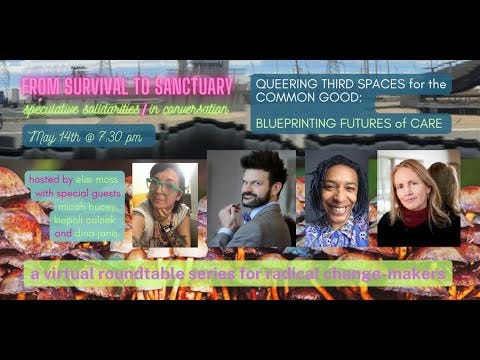


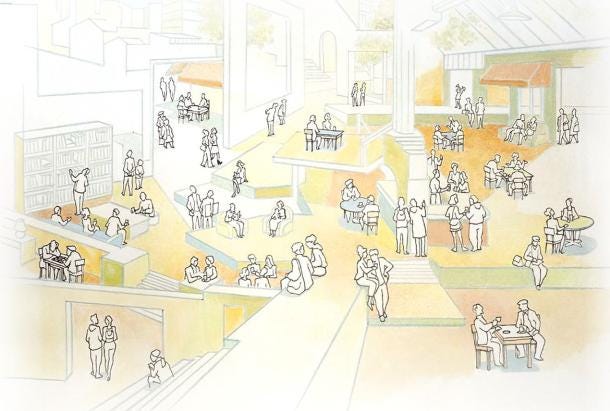
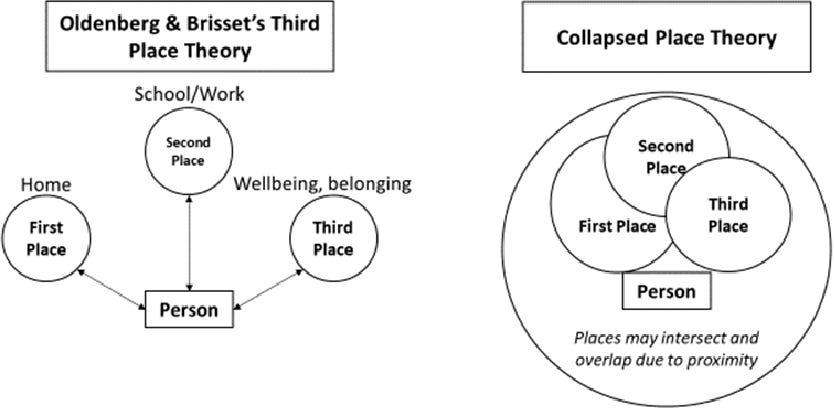


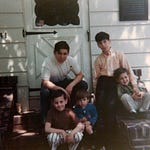
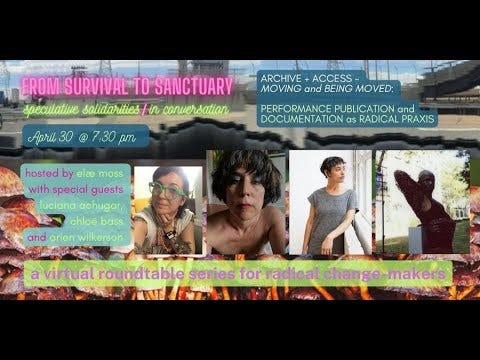

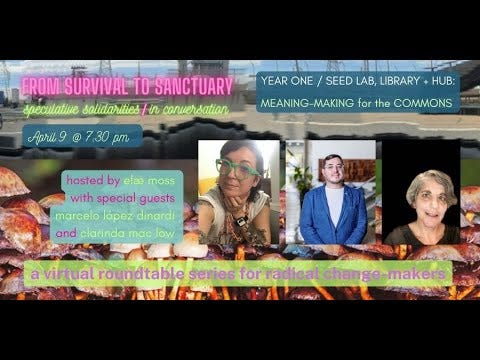


Share this post